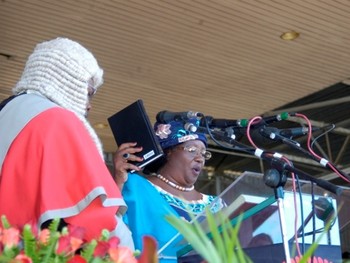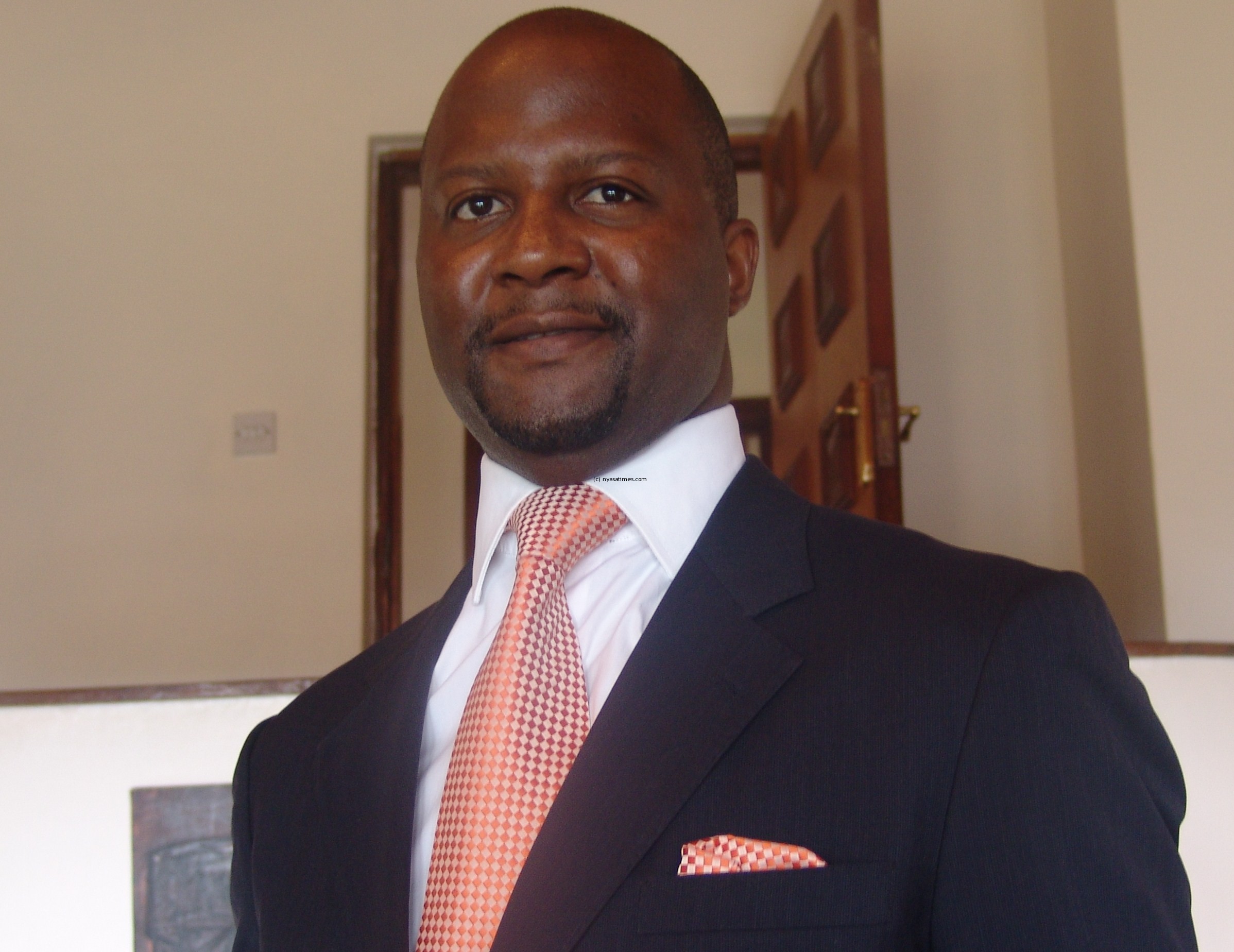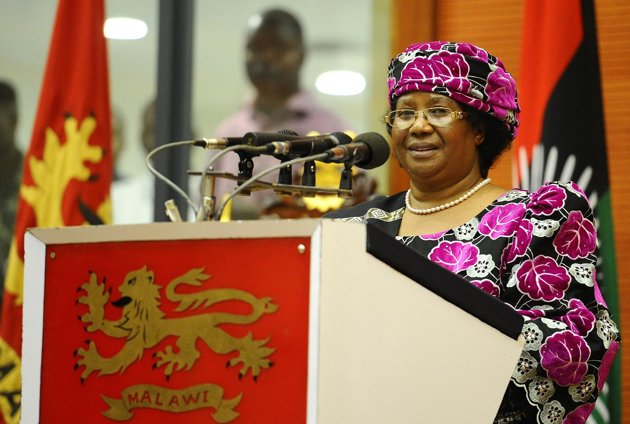Since 1994, the judiciary has been a central pillar of democracy in Malawi. Operating under adverse political and economic conditions, most Malawian judges have shown unerring commitment to justice, impartiality, fairness, consistency, reason and equality, often to the disappointment of the political elite and at personal risk to themselves. The body of jurisprudence they have generated over these years is staggering and compares well with that produced by the courts in more established and advanced democracies.
This admirable record of the judiciary is now under serious threat arising from the cumulative effect of attempts made by successive regimes in the country to tame the judiciary. The threat arises from a deep indignation by the political elite for the rule of law, democracy, constitutionalism and justice, and from inane inclinations for absolute power.
Former President Bakili Muluzi attempted (unsuccessfully) to meddle with the judiciary firstly by seeking to remove three judges whom he thought were too independent for his liking. He then introduced a law that limited the powers of High Court judges to hear constitutional cases alone, which later led to the emergence of what has come to be loosely called the ‘Constitutional Court’ – meaning a High Court sitting in a panel of at least three judges to hear cases raising direct constitutional issues.
If Muluzi was uncomfortable with an independent judiciary, President Dr Bingu wa Mutharika was incensed by it. Throughout his tenure, Wa Mutharika simply did not understand the idea of the separation of powers, or that the judiciary is not really an enemy of government but an essential partner whose commitment to truth and justice must be seen as integral to any conception of a good and civilised society.
Apart from launching public attacks on the judiciary and the legal profession as a whole, he originated a new form of subtle but quite effective interference with the judiciary based on a perceived gap in the Constitution. This gap takes advantage of the inherent appetite human beings have for power, influence, attention and accumulation of wealth.
Section 119(7) of the Constitution empowers the President, where he considerers it desirable in the public interest and with the consent of the person concerned, to assign a judge to any other office in the public service for such period as the President may determine. This provision is a remnant of the 1966 Constitution whose relevance to the new constitutional regime is at least questionable. Nevertheless, its possible impact on the independence of the judiciary can be limited with appropriate interpretative tools.
Through this provision, Wa Mutharika appointed two judges of the High Court in succession to the office of the Attorney General, firstly Dr Jane Ansah and then Mr Maxon Mbendera. On both occasions, the President did not disclose why he thought these appointments were in the public interest as is required by the Constitution given that they constituted a serious erosion of the separation of powers. Clearly, section 119(7) does not authorise the President to ride roughshod over this fundamental constitutional principle. A judge may be assigned to any public post that does not threaten the independence of that judge or undermine the separation of powers.
Appointing a judge to serve as the top-most advisor of the executive undermines the independence and integrity of the judge concerned as well as violating the principle of the separation of powers. Even if one could argue that, technically, the Attorney General is an independent office, the practice since 1994 shows that successive Attorneys General, including Ansah and Mbendera, have failed to display the measure of independence expected of the office.
Both Ansah and Mbendera were involved or acquiesced in decisions that were undemocratic and unconstitutional. These included the introduction of draconian laws that sought to whittle down the powers of the courts to grant injunctions, laws that restricted the rights to assembly, association and protest, actions that resulted in the death of at least 18 people, a clamp down on prominent members of civil society and opposition parties, and blatant disrespect of court orders.
The practice of dangling the carrot of attractive executive appointments to judges was coupled with promises of direct incentives of career advancement to the individuals concerned. Ansah earned an immediate promotion to the Malawi Supreme Court of Appeal (MSCA) when she was dropped as Attorney General. Mbendera, too, was recently similarly promoted under circumstances that astonished the entire judiciary and legal profession. If the initial appointments were unconstitutional because they violated the separation of powers and judicial independence, these promotions are illegal because they constitute direct personal favours to the judges concerned for the role they played as servants of the executive.
Fragrant as these violations of the Constitution are, it is puzzling that the current regime has condoned them and continued to perpetuate them. It is the Peoples Party (PP) government that promoted Mbendera, defying the established seniority norm in judicial appointments and ignoring his loss of credibility caused by his involvement in the Democratic Progressive Party (DPP) regime. It is also the PP government which appointed Justice Rezine Mzikamanda of the MSCA to the position of Director of Public Prosecutions, a seemingly independent office that is also a deeply compromised office in practice.
This means that a total of three of the ten judges of the MSCA lack an appearance of independence. This is not insignificant especially if we consider the position of the Chief Justice as will be seen below.
The position of Mbendera is particularly curious as he is currently the chairperson of the Malawi Electoral Commission. As the next presidential and parliamentary elections get closer, all political parties must be worried about the impartiality of the Electoral Commission headed by Mbendera. Having succumbed to the trappings of political power during the DDP regime, his role in the plot to subvert the Constitution after the death of the former President Wa Mutharika having been exposed by the Singini Commission, and having been honoured with an undeserved promotion to the MSCA, Mbendera, once a respected lawyer, no longer commands the credibility and integrity he once enjoyed, and is thus vulnerable to exploitation by any political contender who offers him a career lifeline.
If this tale of the Malawian judiciary is not troubling enough, the predicament of the Chief Justice must raise it to the status of a judicial crisis. Before his appointment, Justice Lovemore Munlo was a well-known and senior Malawi Congress Party card-carrying member. This by itself should have disqualified him from consideration for the position. Nevertheless, he was handpicked by President Bingu wa Mutharika from outside the ranks of serving judges, assuming office even before Parliament confirmed his appointment. Munlo’s political spots betray him every time with persistent media speculation about his political ambitions and connections with various political parties. Surprisingly, he never takes the trouble publicly to distance himself from these reports.
Munlo’s record as Chief Justice remains questionable, coloured by intemperate behaviour, lack of collegiality and a pro-government attitude. He single-handedly transformed a simple administrative procedure of certifying cases as constitutional or not into a judicial process which has had the consequence of frustrating legitimate constitutional challenges to government actions. What is worse, he has failed to take serious action against Justice Joseph Manyungwa who is accused of one of the worst acts of judicial misconduct, writing a judgement in a case which he did not hear in which he gave the verdict for a party that the judge who heard the case found against. Justice Munlo also put himself in a position of conflict of interest by asking the government to grant him a favour of connecting his appointment as Chief Justice to his former appointment as a High Court judge from which he resigned many years ago so that he can earn more retirement benefits than he is lawfully entitled to.
Given this history, it is not surprising that Justice Munlo found himself hesitant to uphold the Constitution during the transition from the Mutharika to the Joyce Banda regime. In a time of emergency like the one that presented itself at the death of President Wa Mutharika, the Chief Justice was by the Constitution expected to be the foremost defender of the Constitution.
Unlike General Odillo, Justice Munlo failed to rise to the demands of his office by failing to acknowledge the rightful heir to the office of the President. Quite on the contrary, he put himself in a position of conflict of interest by aligning himself with a faction that was planning to subvert the rule of law and the Constitution. In his defence to the Singini Commission, Munlo argued that he could not acknowledge Mrs Banda as the rightful heir because he was aware of an impending court action to challenge her claim to the office. He thought this meant that he was acting neutrally. As I have argued above, in this kind of situation the Constitution required him to take a position, which he did not do. It was up to other judges to consider whether his position was incorrect. And indeed, there was only one plausible position here, which was that the Vice President was the rightful heir. The claim to neutrality falls flat considering the fact that in refusing to acknowledge the rightful heir, Munlo was in fact siding with the faction that sought to challenge the Vice President’s claim to the office.
Many unanswered questions remain regarding the involvement of the Chief Justice in the attempt to subvert the Constitution. For example, how did the Chief Justice know about a case that was not yet before a court of law? Why was he informed about it and by whom? What was the content of that conversation? Didn’t the Chief Justice realise that this was inappropriate and unethical conduct? How could he have based his actions on a case that was not before him, let alone not before the courts? When was he informed that the President had died? Did he visit Prof Peter Mutharika to offer his condolences before or after the public announcement of the President’s death? If he was serious about remaining neutral, why did he visit Prof Mutharika twice or why did he not do so vicariously?
In a crucial moment of constitutional crisis, Chief Justice Lovemore Munlo behaved in a manner that demeaned the position of the Chief Justice. He failed both the Constitution and the nation. Nowhere else would these kinds of dereliction of duty, unethical behaviour and breaches of the Constitution be tolerated.
We need to take judicial independence seriously, or our hard-won democracy will soon relapse into the authoritarianism of the past. The reform of the judiciary in Malawi requires urgent attention. We must take concrete measures to clean up the judiciary and protect it from these kinds of irregularities, abuses and wrongs.
*Danwood M Chirwa is a Professor of Law and Head of the Department of Public Law, University of Cape Town




